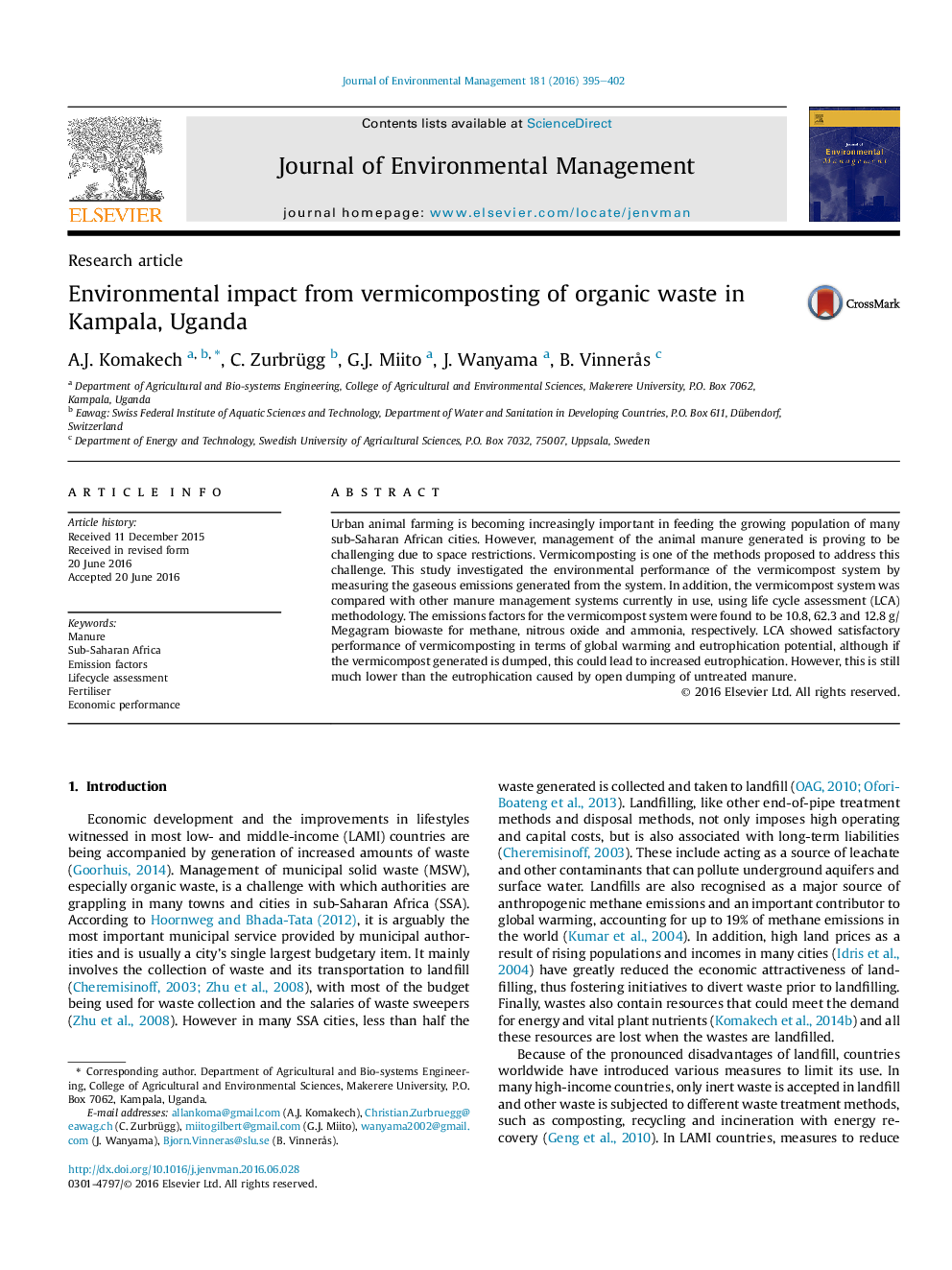| Article ID | Journal | Published Year | Pages | File Type |
|---|---|---|---|---|
| 7479683 | Journal of Environmental Management | 2016 | 8 Pages |
Abstract
Urban animal farming is becoming increasingly important in feeding the growing population of many sub-Saharan African cities. However, management of the animal manure generated is proving to be challenging due to space restrictions. Vermicomposting is one of the methods proposed to address this challenge. This study investigated the environmental performance of the vermicompost system by measuring the gaseous emissions generated from the system. In addition, the vermicompost system was compared with other manure management systems currently in use, using life cycle assessment (LCA) methodology. The emissions factors for the vermicompost system were found to be 10.8, 62.3 and 12.8Â g/Megagram biowaste for methane, nitrous oxide and ammonia, respectively. LCA showed satisfactory performance of vermicomposting in terms of global warming and eutrophication potential, although if the vermicompost generated is dumped, this could lead to increased eutrophication. However, this is still much lower than the eutrophication caused by open dumping of untreated manure.
Related Topics
Physical Sciences and Engineering
Energy
Renewable Energy, Sustainability and the Environment
Authors
A.J. Komakech, C. Zurbrügg, G.J. Miito, J. Wanyama, B. VinnerÃ¥s,
